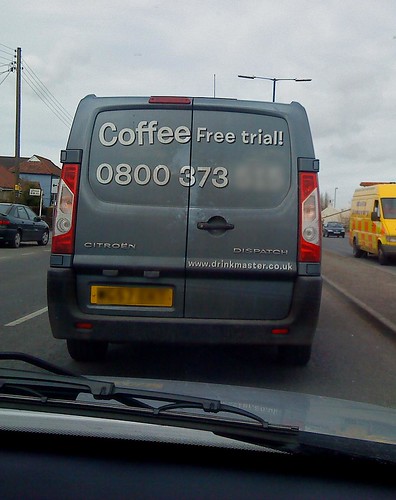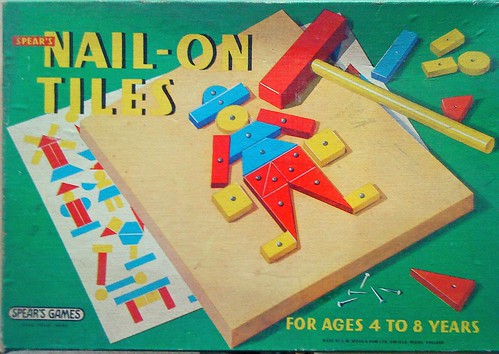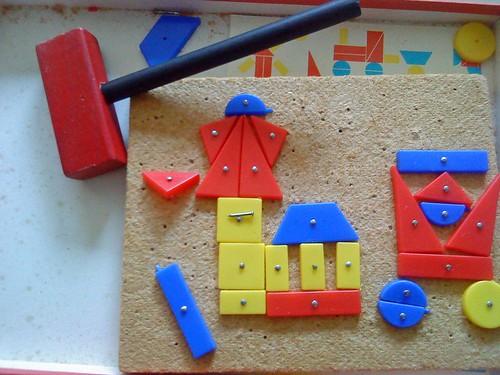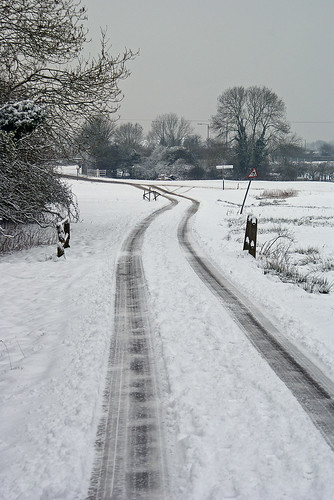Photos
Monthly Archives
- September 2014 (17)
- March 2014 (1)
- November 2012 (1)
- May 2012 (1)
- April 2012 (2)
- January 2012 (5)
- July 2011 (1)
- February 2011 (1)
- January 2011 (2)
- October 2010 (1)
- September 2010 (3)
- August 2010 (10)
- July 2010 (1)
- June 2010 (1)
- May 2010 (4)
- April 2010 (8)
- March 2010 (1)
- February 2010 (3)
- January 2010 (6)
- December 2009 (3)
- October 2009 (3)
- September 2009 (1)
- August 2009 (2)
- July 2009 (2)
- June 2009 (4)
- May 2009 (3)
- April 2009 (2)
- March 2009 (3)
- February 2009 (4)
- January 2009 (9)
- December 2008 (7)
- November 2008 (6)
- October 2008 (4)
- September 2008 (5)
- August 2008 (6)
- July 2008 (3)
- June 2008 (6)
- May 2008 (3)
- April 2008 (7)
- March 2008 (5)
- February 2008 (6)
- January 2008 (8)
- December 2007 (3)
- November 2007 (2)
- October 2007 (1)
- September 2007 (4)
- August 2007 (11)
- July 2007 (13)
- June 2007 (11)
- May 2007 (11)
- April 2007 (11)
- March 2007 (15)
- February 2007 (18)
- January 2007 (30)
- December 2006 (12)
- November 2006 (6)
- October 2006 (14)
- September 2006 (13)
- August 2006 (13)
- July 2006 (5)
- June 2006 (14)
- May 2006 (10)
- April 2006 (20)
- March 2006 (16)
- February 2006 (10)
--------------------------
This is the blog of 'angry_cellist', the fictional creation of Dury Loveridge.
It does not, nor should it be perceived to, represent the views of its author, his friends, colleagues or employers.
---------------------------

Looking at Great Britain through Windows
Thee are times, I can’t help thinking, that Great Britain really deserves that adjective. I’m not talking about long-lost empires based on men in freshly-pressed suits planting flags in the ground in front of the natives and declaring their country is now British. I’m talking about the people who have lived in Britain.
I’m not talking about the latest batch, obviously. There is very little in David Beckham’s ability to shuffle his golden balls around an acre of grass trying not to break a metatarsal that would rank him alongside Sir Isaac Newton. There’s very little about Lily Allen’s fine pop-ditties that would make me think that in 100 years time there’ll be an annual series of concerts in the Albert Hall where people who’ve queued outside so long their children have gone from nursery school to University sing ‘The Fear’ in the way they dance along to Sir Elgar’s ‘Pomp and Circumstance’.
I’m thinking of the greats. I’m thinking of Oliver Cromwell, Michael Faraday, Edward Jenner and JRR Tolkien.
An unlikely batch perhaps, but there is a common trend – they were all achieving greatness in an age before computers. And the more I think about it, the less I can think of a single human being to achieve true greatness using a small tin box of silicon chips.
Having just spent 2 days trying trying to coax a computer back to life I can see why. If Oliver Cromwell had owned a PC his New Model Army would have arrived at Naseby 2 days late and dressed in desert camouflage due to clicking on the wrong file, and Charles I would have escaped execution due to a typo.
Michael Faraday wouldn’t have had an easy ride either. For a start, all of his electro-magnets would have played havoc with his hard drive. He’d have had to start again at least twice due to his system crashing, and would have spent so much time fiddling with the layouts of his PowerPoint presentations he’d have forgotten to name the electron.
You need only look at the news of NHS computer systems creating huge waiting lists to imagine that Jenner would have missed the smallpox cure, and Lord of the Rings would have been substantially shorter after the first 200 pages had been missed by the auto-save.
Why do we put up with these things? Computers aren’t helpful; generally they’re rude, arrogant and temperamental. When something goes wrong they make a shrill sound, and a big box arrives on the screen with a big red cross telling you that you’ve caused a ‘terminal error’, when really they should say ‘I’m dreadfully sorry, but I didn’t manage to do that properly for you so I’ll try harder next time’. There’s a general attitude that it’s always the user’s fault.
I spent some time this weekend watching Windows install itself. As I sat there watching a pale blue screen installing what is pretty much the only operating system around my mind started to wander. Mostly where in the garden I could bury it if it didn’t work this time, or what speed I could run it over without doing too much damage to my car.
Why do we put up with them? It doesn’t happen elsewhere in life. You don’t go to a rock concert and see AC/DC walk off in silence halfway through Highway To Hell. You don’t see Sir Ian McKellen walking off halfway through Waiting For Godot saying the audience coughed in the wrong place. A surgeon doesn’t suddenly fall asleep with Mrs Jone’s lower intestine in his hands, and your train to Edinburgh doesn’t terminate unexpectedly at Hull. Unless you’re travelling with Virgin Trains.
I can’t guarantee we can all achieve greatness, but I can guarantee that no ‘Great Britain’ will ever emerge whilst they’re relying on a computer.
Why not try… Coffee
There are quite a few things in the world that simply don’t need advertising.
Why, for instance, advertise ‘bog-standard’ toilet roll? I understand the whole, ‘gently on your nether-regions’ varieties needing to advertise, but let’s face it, unless you’re planning on living with bears for the next couple of years, you’re going to be aware of there being toilet roll in the shops, and probably not really care what the brand is.
Sitting in a traffic queue the other day, I found myself staring at the back of this van for far too long and contemplating: Who is so dead-set against caffeinated drinks that they need enticing with a ‘free trial’? Obviously they’re offering a free trial of their own, special coffee. The only thing is, in their own amazing Saatchi and Saatchi way, they’ve completely forgotten to include the name of the brand, leaving us with the simple instruction to try coffee.
Maybe in their oh-so fun-loving, equality-inspired organicness, they thought they should just forget the cut-throat business-model and advertise everyone’s brands…
Last nail in the coffin of the safety society
“This is the Wartime Broadcasting Service. This country has been attacked with nuclear weapons. Communications have been severely disrupted, and the number of casualties and the extent of the damage are not yet known. We shall bring you further information as soon as possible. Meanwhile, stay tuned to this wavelength, stay calm and stay in your own homes.”
Last year, the National Archives revealed this opening to a script prepared for the BBC in the 1970’s, to be read if World War III started in between the Archer’s and Woman’s Hour. The words ‘stay calm’ are given great importance, and clearly made an impression on Douglas Adams, who would emboss the same sentiment on the cover of The Hitchhiker’s Guide To The Galaxy 8 years later with ‘Don’t Panic’.
Everyone was told to go to whichever room in their house they had predesignated as ‘the fallout room’, and stand in door frames away from windows as if renaming the sitting room would somehow make it impervious to radiation and a door frame is stronger than a weapon of mutually-assured destruction.
The thing is, in the 1970’s people felt assured of their safety. Car designers shunned seat belts, thinking that the safest place for an occupant in the event of a crash was 100 metres into the nearest field via a human-shaped hole in the windscreen. You could smoke on planes, which were largely made out of wood. Sofas were made of kindling and fire fuel. Houses weren’t child-proof. Most houses hadn’t seen the Earth-pin put on their sockets.
Today if you want to sneeze at work you’ll need to fill in a risk assessment. You will need to submit accurate scale diagrams of the workplace, including a projected fallout area or room. You’ll need a health-check to make sure you’re heart is fit enough to handle the strain, and 6 blood tests to prove you’re not contagious. You’ll then need to book a Hazmat team to come in and clear up, and have an incinerator built in the company carpark to dispose of the used tissue. That is, providing you fulfill the requirements of the environmental impact questionnaire.
I mean, when you buy a cup of coffee the cup has ‘contents may be hot’ written on both the lid and the cup, just in case you might have missed the idea of what coffee is all about.
Of course, it’s easy for me to sit here and type ‘things have got worse’ and ‘can we not just use our common sense?’. But where’s my proof, I hear you ask.
Searching through some of my old toys, I found this by the good people of ‘Spears’.
The cover says it all. A wooden hammer, some plastic multi-coloured shapes, and ABOUT 40 NAILS. YES, NAILS. Mind you, they’ve thought about safety – it clearly states ‘For Ages 4 to 8 Years’.
I imagine they carried out some laboratory tests, and found a 3 year old would chew the plastic, and presumably a 9 year old will create some kind of nail gun fighting machine.
In a world where adults have to be protected from an at best lukewarm beverage, it seems almost incomprehensible that a parent would hand their young offspring a bow containing a hammer and nails and send them off into the garden to play. Today I imagine a football comes with a sticker saying ‘may contain small parts’. To use this game today you’d need protective gloves, a hard hat, goggles and a high-visibility jacket.
But what’s the worst that could happen? The child learns an important lesson about treating tools and sharp objects with respect, and Mum has to spend a few minutes pulling a nail out of a palm or two. Today, the closest a child will get to woodwork is making a drawing on some paper and asking their Design teacher to cut it out for them. No wonder there are companies out there who offer their services building Ikea flatpacks.
I can remember as a child how ridiculous it was to be taught about the dangers of running on railway tracks when the nearest railway was 120 miles away. Imagine what kind of person we’re creating when we have to warn them to use a skipping rope under strict supervision.
No wonder people are flocking to holidays involving bungee jumping, deep-sea diving and parachuting. We grew up in a world of danger and unpredictability, and learnt our lessons the hard way. The next generation won’t even know whether their Starbucks drink is hot or not – they’ll be holding it with asbestos gloves and checking the built-in thermometer to make sure it’s not too hot on the tongue.
But it’s hard to see how the human race will advance. It’s hard to imagine the television or telephone being invented if every step along the way involved risk assessments. And are we really better off knowing as we now do that the door frame won’t protect us from a nuclear warhead?
Mini-Break
Thanks to a surprise mini-break from the lovely Sarah, we spent a great couple of days in London. Here’s a photo…
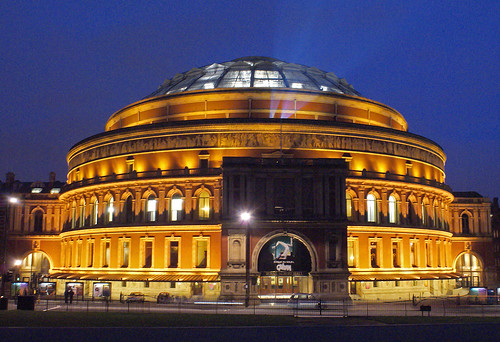
Snow place like home
Everyone make it through the winter? An entire week’s worth of news coverage was handed over to fearless men and women in winter coats sent out into the wilds of Hackney to report on the catastrophe that was 5 inches of snow. Buses ground to a halt, trains were cancelled, the underground was snowed-in. For a few days, the country stood still.
Of course, this melted away into the blame-game: was it Boris or Gordon, Highways Agency or TfL? In the end, it came down to the fact we all felt like a day or two off.
I could write about how terrible this all is, but if you want that you can read it here.
Suffice to say, it made for some nice photos…
I blame it on the Weatherperson
Every day I sit and I watch. Every day my brain tries to fathom out something as incomprehensible as a Japanese soap opera. I recognise the words as English. They leave the television set in what must be a logical, syntactical form, but somehow arrive at my brain as a series of unfathomable things. Nouns, adverbs, they’re all there. But their only affect on me is a look of complete bewilderment and a feeling of disenfranchisement that I last felt in room E2: Year 9 Geography.
Weather forecasts – they must work, right? I mean, every day people set off for work with an umbrella or sunglasses, and I’m pretty sure they don’t just flip a coin and hope for the best. They’ve taken advice on the matter.
It’s just I don’t get them. Don’t get me wrong, I understand what the little clouds mean and everything – I’m not completely useless. I get the little lightning bolts and the arrows and everything.
I get as far as ‘Hello’ and then a red mist descends as the weather forecaster talks about the weather with so much personification it’s as if they went to school with it, meet up regularly for lunch and are going to be it’s childrens’ Godparent.
I can easily sit through 5 minutes of weather and all I can remember is that it was ‘miserable’ or ‘cheerful’. What is miserable weather? I mean, do we need to send a card? Tell it a few jokes? As for cheerful weather, I’ve not once heard a cloud whistling, or watched the sun do that little skip everyone does after receiving good news.
It gets worse. Wind ‘pushes its way in from the west’ or ‘breaks through’ which makes me want to leave the umbrella at home in favour of a baseball bat for fear it might show it’s nasty side and mug me. Sunshine rarely starts ‘smiling through’, and I’ve never got smoke in my eyes from fog ‘burning up’. Sian Lloyd can tell me as much as she wants ‘what a lovely day it’s been’, but if I drove past a dead hedgehog and lost a winning lottery ticket, I’m going to start questioning her accuracy.
Why do we do it? I guess it’s to pretend we have some kind of control of the weather. After 3 weeks of cold weather in the UK, will the country go crazy if we just say it’ll be cold, rather than ‘that chilling freeze is going to still be hanging around us tomorrow’? Like the cold wants to be our friend?
So if you see me out in the cold wearing shorts, or I’m walking out with a raincoat and umbrella in August it’s not that I’m trying to defy the weather, it’s just that after 5 minutes of watching a tv weather forecast, the only thing I understood was whether the weather was happy or sad, moody or easy-going.
Shop Talk
Every weekend Tony Robinson and a man in a sweater his nan knitted come on the telly and set about digging up a few borders and a stretch of lawn behind a bungalow at the end of a quiet cul de sac as the owners, a grinning George and mild-mannered Margot, look on with a mixture of optimism and glee. These middle-class bi-weekly ramblers in their twilight years ask simple inquisitive questions as they milk every second of the fifteen minutes of fame they will bore neighbours and new acquaintances on Saga cruises with stories of for the rest of their lives. They even make cooing noises as Tony pretends asks whether the Romans ate burgers as he tries to the play the part of laymen archaeologist even though he’s been on more ‘digs’ than Indiana Jones.
Each week they set out to prove Caesar lived near Slough, or that the Normans built Norman-style shopping centres based on a design of concentric circles. Each week I’m left wondering why they buried every fragment of broken pot in the ground, and how they managed to kill, cook and eat a mammoth before they’d invented any kind of rudimentary tools.
I have a feeling if Tony and his Swapshop-styled pal spent a day interviewing the people in Argos they’d have enough material on primitive civilisations and bare-bone societies to fill an entire channel from now until 2012.
Argos is a unique business model. If walk in to any of the finest establishments in the world a sales assistant will immediately come to assist me. The clues in the name really. If I walk into Harrods I expect a represent of Mr Al Fayad himself to help me pick out the same chutney Her Majesty eats with her crumpets. If I walk into Sacs on Fifth Avenue I expect someone to help me pick out the latest outfits as worn by Carrie Bradshaw or Bono.
Argos must, therefore, think of itself as some kind of demi-God of the retail world – here is a shop where you have to do all of the work. Walk into any shop in the world and you’ll be greeted by displays and carefully stacked shelves. In Argos you have to peer and squint at a book heftier than the complete works of Chekhov, at a picture of a garden shed smaller than a postage stamp.
Only once you written your number down on that little slip, queued for the first time, and handed over the cash are on the way to being able to see the goods. A quick sneaky peek behind the collection desk afforded me a grand view of an Aladdin’s cave of merchandise. Shelves worthy of the Bodleian library crammed full of things money simply can’t buy without a ten minute wait. Plasma tvs, rocking chairs and tartan slippers stand proudly shoulder-to-shoulder on dusty shelves. Occasionally you might see a glimpse of a shadowy figure, running from shelf to shelf in the half-light, foraging for fancy goods.
Of course, there was the customary wait whilst I waited for my order to come up on the little screen. Fat women in tracksuits, children stuffing their faces with pasties, teenagers with more piercings than a colander and middle-aged men in beige all sat on cafeteria chairs staring up at the monitor like last-chance gamblers in a betting shop hoping their last £10 on horse 11 will be put to good use. We’re all waiting for our number to come up, but I suspect for some that had a slightly more metaphoric meaning than others. Suddenly I realise the ingeniousness of the founders of Argos, who had the foresight to name their shop after Odysseus’ dog, who patiently waited 20 years for his master’s return.
Finally my little plastic-wrapped package slid down the rollers to see it’s first signs of daylight for some time. It has its customary little square piece of paper sellotaped just below the name on the box, so the hunter-gatherers of Argos can tell what it is – they seem to work in numbers rather than words. My sale assistant, ‘Sian’ forces a grunt out passed the pen in her mouth to acknowledge my existence. I can’t help wondering if this is the frontline of the workforce, the friendly faces, who or what do they have working behind the scenes?
She stamps the papers which release my purchase into the outside world. She asks me if I was having a good day, whether there was anything else she can do for me today, whether I would like a bag, and that she hopes I have a great day. At least I assume she does. It came out as a single sound – a strange mixture of phlegm-disloging cough and primordial grunt. I knew Tony hadn’t made it here yet.
Fish Van
“Fish” and “van”. Two lovely words. Not so good for Scrabble, but they might just get you out of a fix on Countdown.
The thing is, they’re not really words you expect to go together. If I were really, and I mean really needing to connect the word “fish” with a mode of transport, I’d probably opt for the more predictable ‘bicycle’. Maybe ‘tricycle’. Possibly ‘rickshaw’ if I were currently East of Greenwich.
Imagine my surprise then, when my idle mid-morning sofa-sitting was interrupted by a man wearing an anorak who’s first words to me as I opened the door were ‘fish van’.
There was a momentary pause. He looked into my eyes hopefully (and in a strictly platonic way I may add), and my brain ran through every memory of my last 29 years on this planet in the hope of somehow connecting these two ill-fitting nouns.
Thankfully my newfound anoraked friend continued, “I drive the fish van”.
“Sorry. We don’t eat fish”, I replied with an annoyance that I was apologising for not liking the one foodstuff he seemed to have made a career out of.
“That’s okay. I do meat as well. Do you want to take a look?”, my clearly Sir Alan Sugar-trained adversary replied.
“Oh. Well… um… we like to support our local butcher on the High Street”, I said. At this point I stood a little taller, and my voice suddenly went into 1950’s BBC Newsreader mode mixed with Telegraph-reader snootiness.
“That’s okay. Do you want to come and have a look anyway?”
Suddenly it was like I was reenacting those Charlie and Archie adverts they put on telly when I was a kid. My brain was broadcasting public service announcements on all frequencies. It was telling me not to play with matches. Not to play on railways. To clunck-click every trip. To follow the Greencross Code. To not go off with strangers. Yes, that was the one we needed now. I knew what to do: I mustn’t wander off with him without telling my Mum first. Would she have her mobile on now?
“It’s parked just around the corner…”
Oh my God. Any second now he’d be offering me some brightly-coloured sweets to entice me to wander around the corner with him and see his meat in his fishy-smelling van.
“Um. I’ve seen it. I think you deliver to one of the houses opposite…”. Please God let it be the case he delivers to a house opposite.
“Oh yeah. Number 38”.
Thank you! “Yes. Well… um… I’ve seen it when you’ve been there. I’ve walked alongside it when you’ve been there, so I’ve seen inside it”.
“Oh. Okay. Thanks for your time”, he said exceptionally cheerily, and went on his way to try his luck with the neighbours.
I came back indoors, resisting the temptation to put the security chain on. I sat on the sofa and let out a sigh of relief at my lucky escape. Then I thought, maybe I’ve just missed something truly magic – maybe it was a van made out of a fish? What if it was a fish driving the van? A halibut chauffeur, or mackerel mechanic? Then I remembered: Fish deliver on bicycles.
President Obama
What a day. The colonies have elected their new leader, and my own words fail me. So instead, courtesy of the fantastic Wordle website, I fed Obama’s inaugural speech and a large chunk of George W’s words into the generator, and I thought I’d let the former and current Presidents’ words do the talking…
Notable words of Obama’s Inaugural Speech:

Does anyone else see ‘Today, less people seek new America”?
Other notable words? Freedom, era, spirit, ideals, trust, future.
The words of President Former President George W Bush:
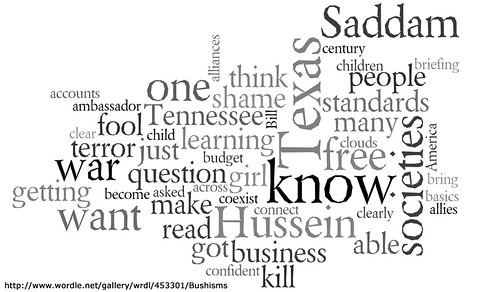
I think this speaks for itself…












